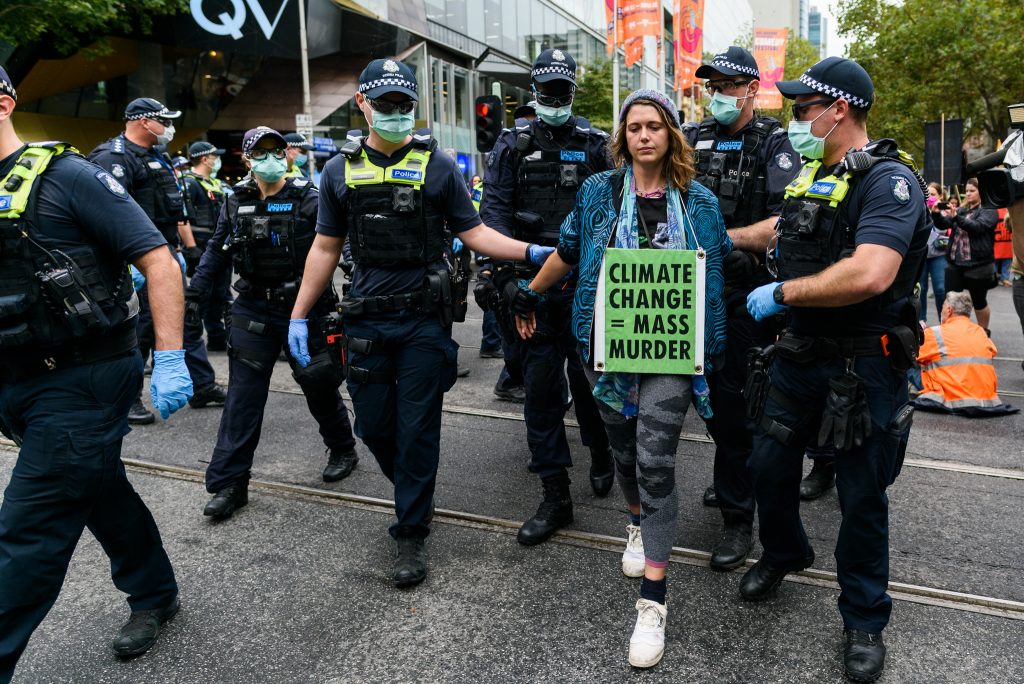Climate Change and Criminal Law
Steven Tudor and Nicole Rogers[1]

This chapter explores a range of issues about the connections between climate change and criminal law and procedure. The aim is to help students broaden and deepen their understanding of each, and their connections. The chapter addresses various issues concerning the interpretation of existing law, critical analysis of the law, conceptual reconfigurations of the law’s possibilities and normative prescriptions for law reform. These different topics intersect in multifarious ways and should not be treated in isolation.
Through the actions the law criminalises and the ways the criminal justice system processes accused persons and offenders, a society formally recognises what counts as ‘harms’, who counts as a ‘victim’ and who counts as a ‘criminal’ — and these will reflect and express a range of fundamentally important social and political values. The criminalisation of conduct and the subsequent prosecution and punishment of crimes are also very important ways through which a society seeks to change the behaviour of some of its members. The creation of new criminal laws, and the prosecution and punishment of criminal offenders, are usually intended to deter undesirable future behaviour (such as pollution or environmental destruction) and possibly encourage desirable behaviour (such as lower carbon emissions). The criminal law can also be an effective, if rather blunt, tool in protecting the status quo, by criminalising and punishing activism that seeks to change how things are being done and by not criminalising environmentally destructive activity.
Chapter Outline
1. Criminal Law and Combating Climate Change
1.1. Criminalising Excessive Greenhouse Gas Emission and Production of Fossil Fuels
1.3. Criminal Responsibility of Corporations for Climate Offences
2. Criminal Law and Climate Activism
2.2. Defence of Emergency or Necessity
The chapter focuses on two general areas of interest:
- how criminal law and procedure is and might be used to help (or hinder) efforts to combat climate change (section 1); and
- how criminal law and procedure can and should be deployed when dealing with activists and others seeking to combat climate change (section 2).
This list does not exhaust the range of topics raised by the intersection of climate change and criminal law and procedure, but it provides some starting points for exploring this large and important legal domain.
- The authors of this chapter would like to thank Joanna Kyriakakis for her valuable help with this chapter, especially her guidance regarding ecocide. ↵
Changing laws, or law reform, involves processes and practices that might involve government institutions and non-government agencies, protests, court decisions and elections.

